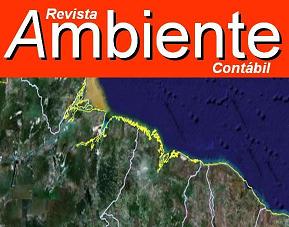COLONIZAÇÃO DA CONTABILIDADE: UM ESTUDO SOBRE O PROCESSO DE CONVERGÊNCIA DA CONTABILIDADE BRASILEIRA AOS PADRÕES INTERNACIONAIS
Resumo
Este artigo tem o propósito de investigar a percepção dos docentes na perspectiva habermasiana sobre o processo de convergência da contabilidade brasileira aos padrões internacionais. Para a realização da pesquisa, utilizou-se o método empírico-indutivo com abordagem metodológica quali-quantitativa. Para coleta dos dados utilizou-se questionários estruturados, aplicado aos professores do curso de Ciências Contábeis de duas instituições de ensino superior do nordeste brasileiro, sendo uma pública e outra privada. Os dados coletados foram submetidos à Análise de Correspondência Múltipla (ACM) com a finalidade de identificar uma combinação de respostas e categorias que pudessem apresentar uma maior estabilidade, quando estivessem plotadas no espaço multidimensional, resultando em duas conjecturas de respostas. Os resultados mostram que há indícios de colonização da contabilidade no Brasil. Assim, no mundo da vida do referido caso, deveria estar havendo uma integração social, entre todos os que fazem parte da classe contábil, para que houvesse um compartilhamento comunicativo das normas emitidas pelo International Accounting Standards Board (IASB), as quais norteiam as ações dos referidos atores sociais envolvidos.
Palavras-chave: Convergência Contábil.Normas Internacionais de Contabilidade. Colonização Interna do Mundo da Vida.
Downloads
Downloads
Publicado
Como Citar
Edição
Seção
Licença
Autores que publicam nesta revista concordam com os seguintes termos:
Os autores mantêm os direitos autorais e concedem à revista o direito de primeira publicação, com o trabalho simultaneamente licenciado sob a Licença Creative Comomns Attribution que permite o compartilhamento do trabalho com reconhecimento da autoria e publicação inicial nesta revista.
Os autores têm autorização para assumir contratos adicionais separadamente, para distribuição não-exclusiva da versão do trabalho publicada nesta revista (ex.: publicar em repositório institucional ou como capítulo de livro), com reconhecimento de autoria e publicação inicial nesta revista.
Os autores têm permissão e são estimulados a publicar e distribuir seu trabalho online (ex.: em repositórios institucionais ou na sua página pessoal) a qualquer ponto antes ou durante o processo editorial, já que isso pode gerar alterações produtivas, bem como aumentar o impacto e a citação do trabalho publicado.
A Revista Ambiente Contábil utiliza uma licença Creative Commons CC-BY-NC-ND (Atribuição-NãoComercial – SemDerivações 4.0). Isso significa que os artigos podem ser compartilhados e que a Revista Ambiente Contábil não pode revogar estes direitos desde que se respeitem os termos da licença:
Atribuição: Deve-se dar o crédito apropriado, prover um link para a licença e indicar se mudanças foram feitas.
Não Comercial: Não se pode usar o material para fins comerciais.
Sem Derivações: Se for remixar, transformar ou criar a partir do material, não se pode distribuir o material modificado.

Creative Commons - Atribuição-NãoComercial-SemDerivações 4.0 Internacional


 Português (Brasil)
Português (Brasil) English
English Español (España)
Español (España)


